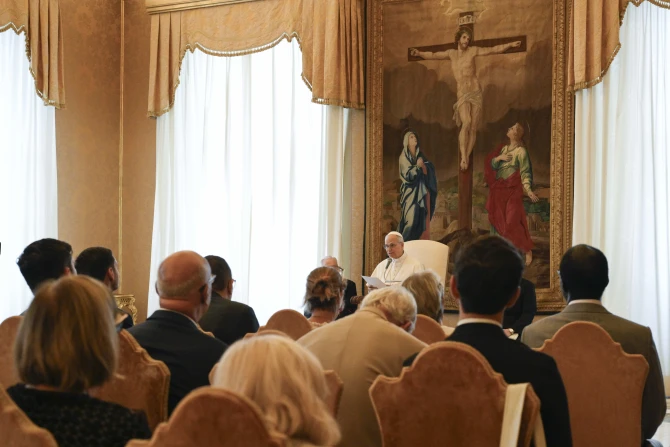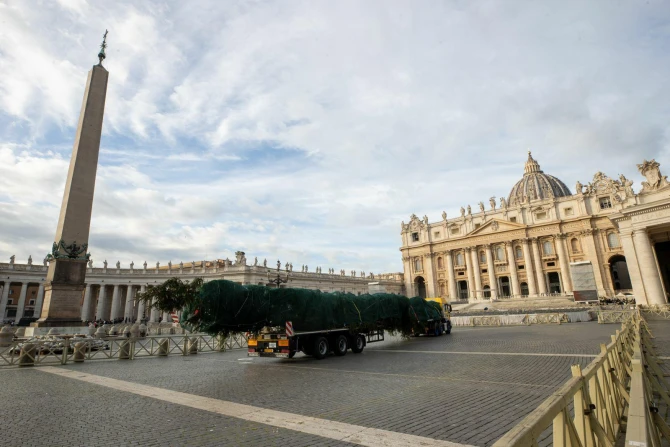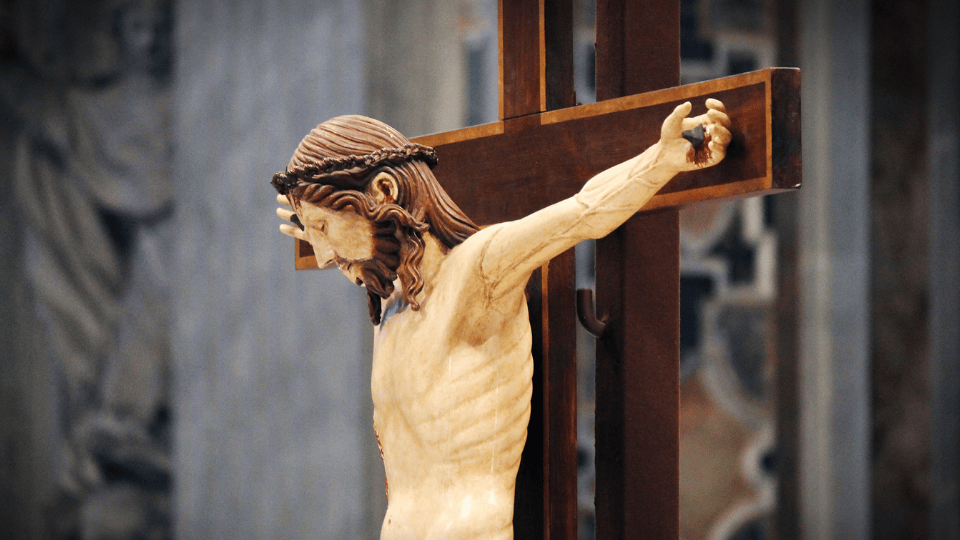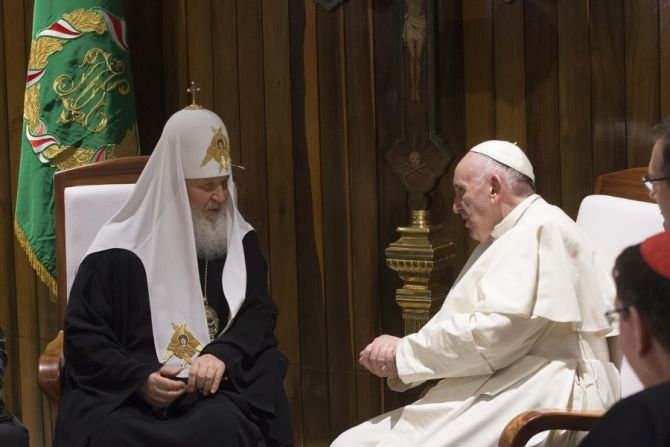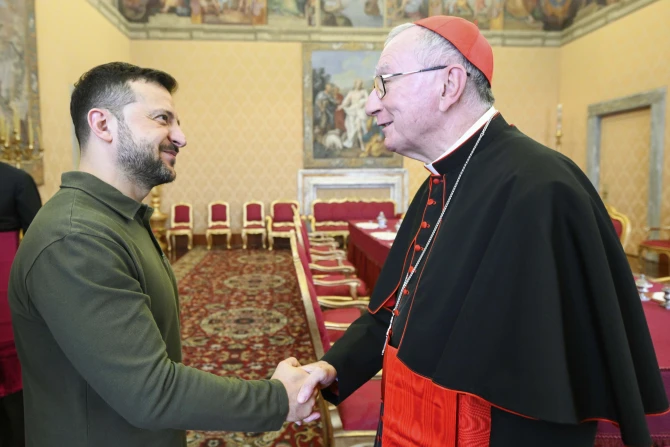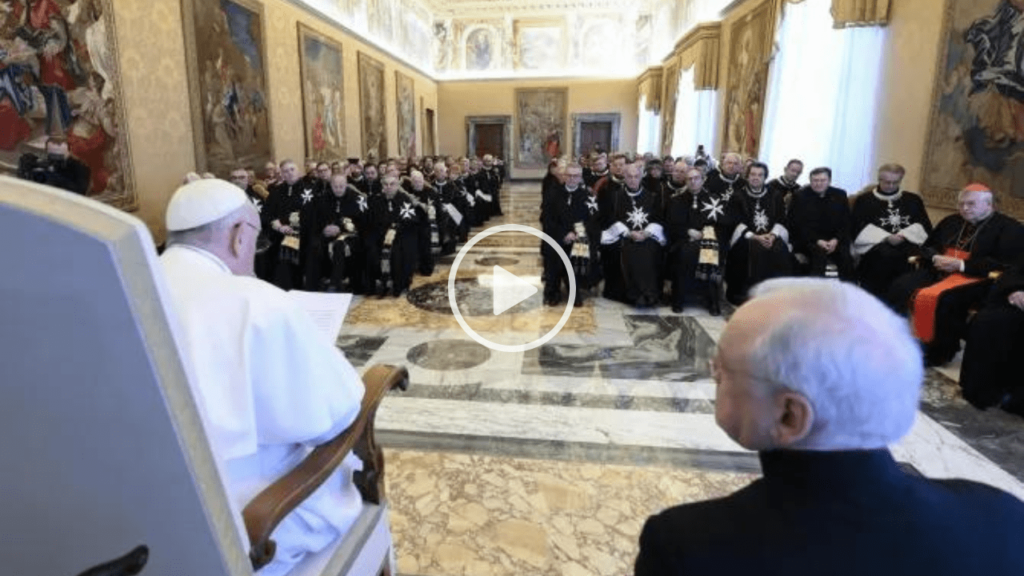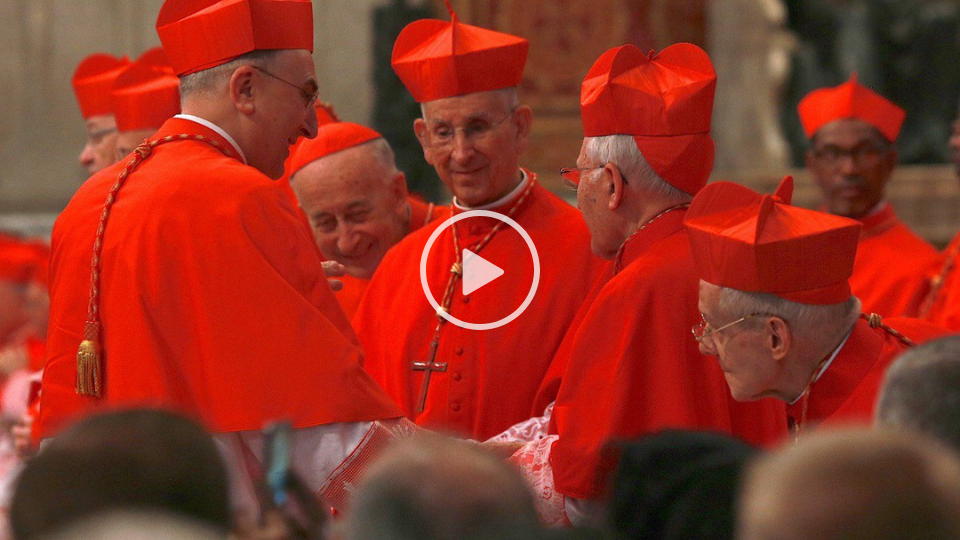Pope Leo XIV on Thursday encouraged Catholic politicians to live coherently as Christians and follow the Gospel, even when performing their public duties in a secular polity.
During an Aug. 28 meeting with a delegation of political representatives and civic leaders from the Diocese of Créteil, France, accompanied by Bishop Dominique Blanchet, the Holy Father stated that “a more just, more human, more fraternal world” can only be “a world more imbued with the Gospel.”
Thus, he added, “in the face of the various deviations present in our Western societies, we can do nothing better, as Christians, than to turn to Christ and ask for his help in carrying out our responsibilities.”
For this reason, the pope highlighted the importance of political and social leaders being committed to acting in coherence with their faith, because “beyond mere personal enrichment, it carries great importance and usefulness for the men and women they serve.”
In this regard, he underlined that such determination “is all the more praiseworthy considering that, in France, due to a sometimes-misunderstood secularism, it is not easy for an elected representative to act and decide consistently with their faith.”
‘Christianity cannot be reduced to a mere private devotion’
Because the Christian message embraces every dimension of the human person, Leo XIV stressed that “Christianity cannot be reduced to a mere private devotion, since it entails a way of living in society infused with love for God and neighbor, who in Christ is no longer an enemy but a brother.”
To face social challenges, the Holy Father said Catholic politicians must rely “on the virtue of charity that dwells within them since baptism,” a gift of God that, as he cited from the Compendium of the Social Doctrine of the Church, constitutes a “force capable of inspiring new paths to address today’s problems and to renew profoundly from within structures, social organizations, and legal norms,” bringing charity from the personal realm into the social and political one because “it makes us love the common good and leads us to effectively seek the good of all.”
Pope Leo XIV also noted that the Christian politician “is better prepared to face the challenges of today’s world, provided, of course, that he lives and bears witness to his faith in him, to his personal relationship with Christ.”
In this sense, he warned against the temptation to promote values “however evangelical they may be, but ‘emptied’ of Christ, their author,” since they will be “incapable of changing the world.”
Responding to Blanchet’s request for advice to Catholic politicians, Leo XIV replied: “The first and only one I will give you is to unite yourselves more and more to Jesus, to live and bear witness to him.”
Coherence in public life
“There is no split in the personality of a public figure: There is not, on one side, the politician and, on the other, the Christian. Rather, there is a politician who, under God’s gaze and before his conscience, lives his commitments and responsibilities as a Christian!” he added.
To achieve such coherence of life, the pope recalled the call for Catholic politicians “to strengthen themselves in faith, to deepen their knowledge of doctrine — especially social doctrine — that Jesus taught the world, and to put it into practice in carrying out their duties and in drafting laws.”
He also affirmed the enduring validity of natural law, a norm “that all can recognize, even non-Christians. Therefore, we should not fear proposing it and defending it with conviction: It is a doctrine of salvation that seeks the good of every human being, the building of peaceful, harmonious, prosperous, and reconciled societies.”
Courage in the face of difficulties
At the end of his address, the pope acknowledged that “an openly Christian commitment by a public official is not easy, especially in certain Western societies where Christ and his Church are marginalized, often ignored, and at times ridiculed.”
Such a commitment also means facing political pressures, including that of “ideological colonization,” Leo said, using a term coined by his predecessor Pope Francis to refer to campaigns by wealthy countries and organizations to influence the values of developing nations. Leo said that Christian public officials “need courage: the courage sometimes to say ‘no, I cannot,’ when the truth is at stake.”
“Only union with Jesus — Jesus crucified! — will give you that courage to suffer for his name,” the pontiff declared, recalling Christ’s words: “In the world you will have tribulation, but take courage: I have overcome the world.”
In conclusion, the pope expressed his support for Catholic politicians and encouraged them not to lose hope in a better world: “Remain certain that, united to Christ, your efforts will bear fruit and receive their reward.”
SIGN UP FOR OUR NEWSLETTER HERE
This story was first published by ACI Prensa, CNA’s Spanish-language news partner. It has been translated and adapted by CNA.

